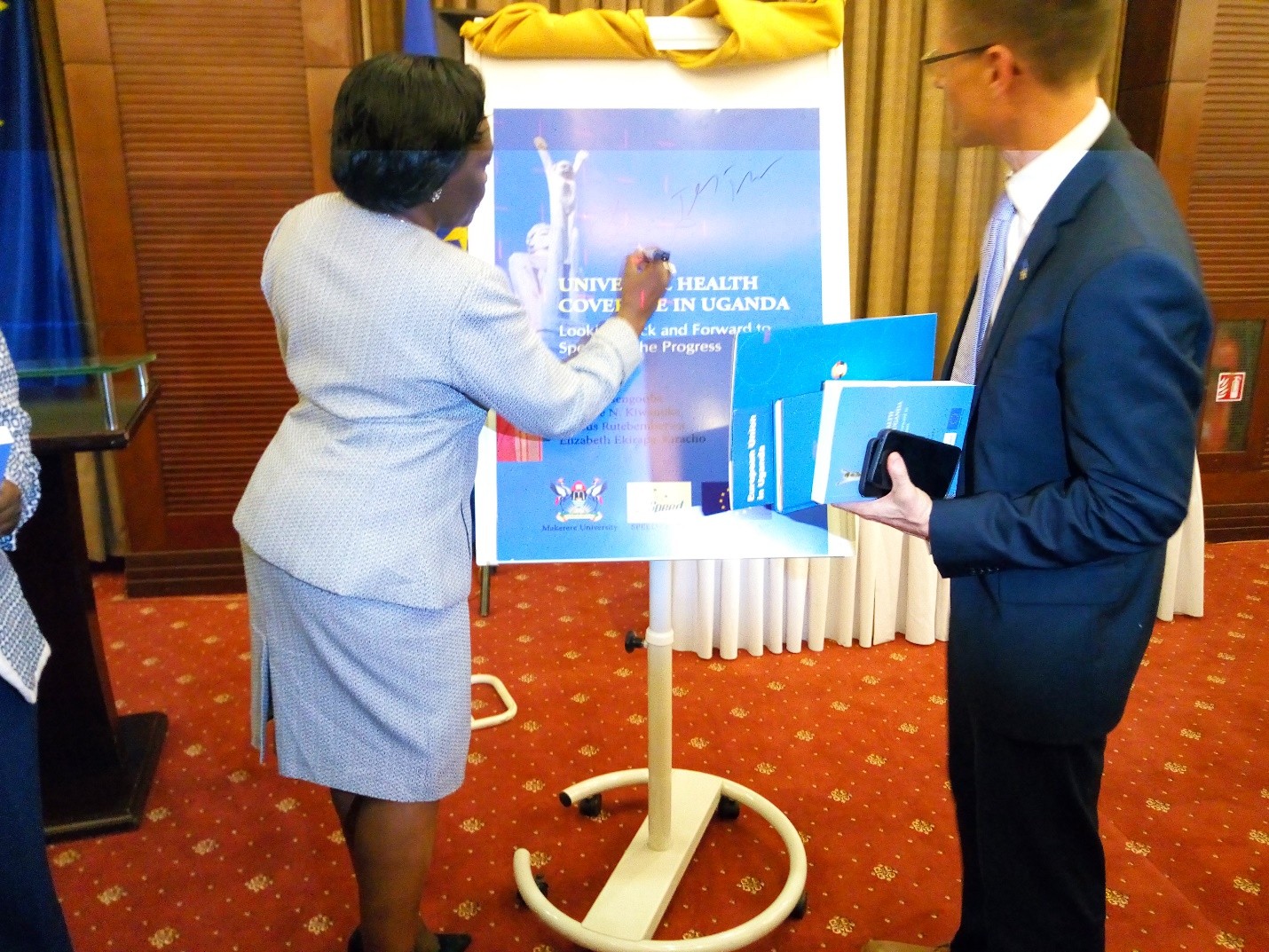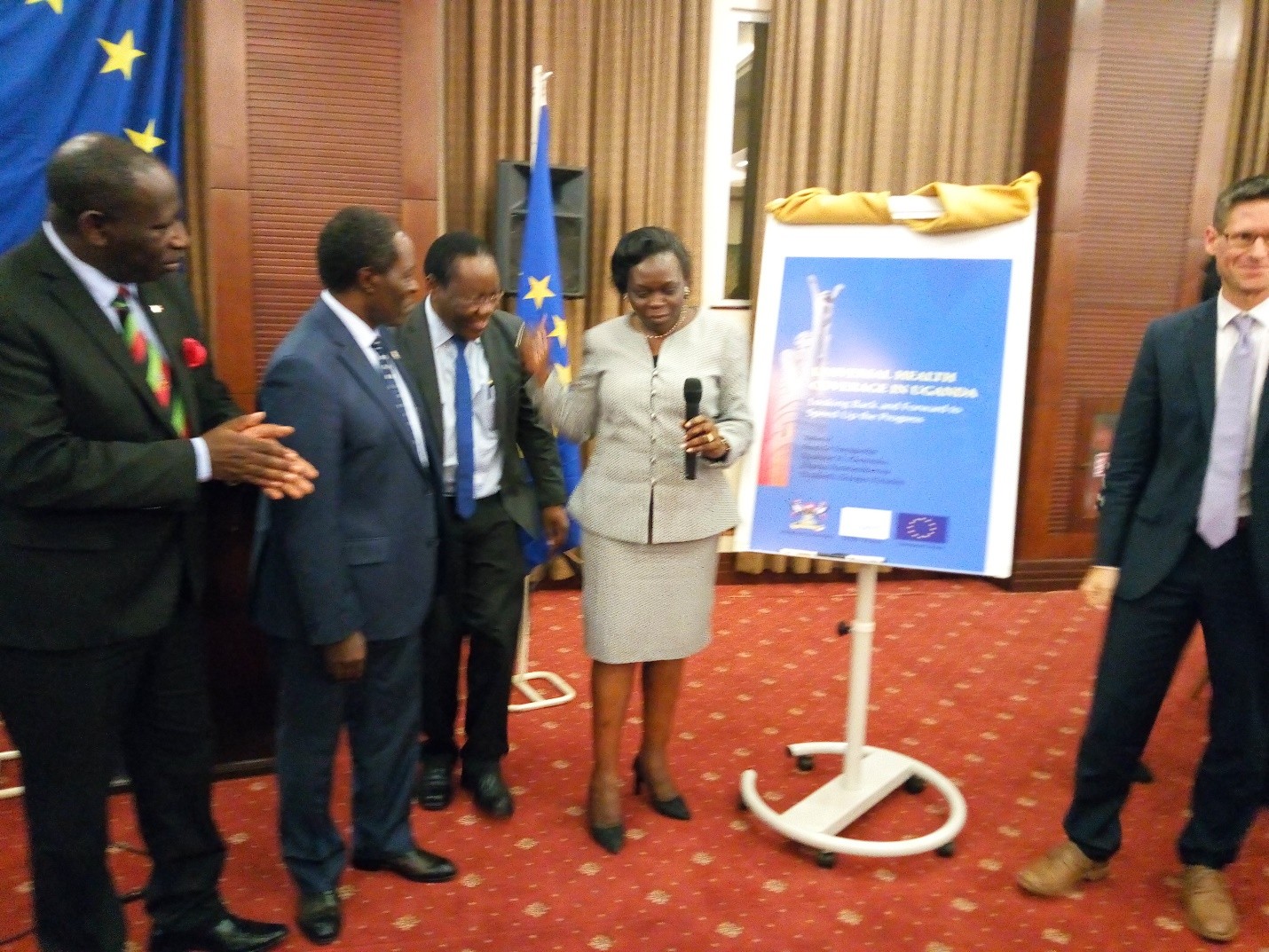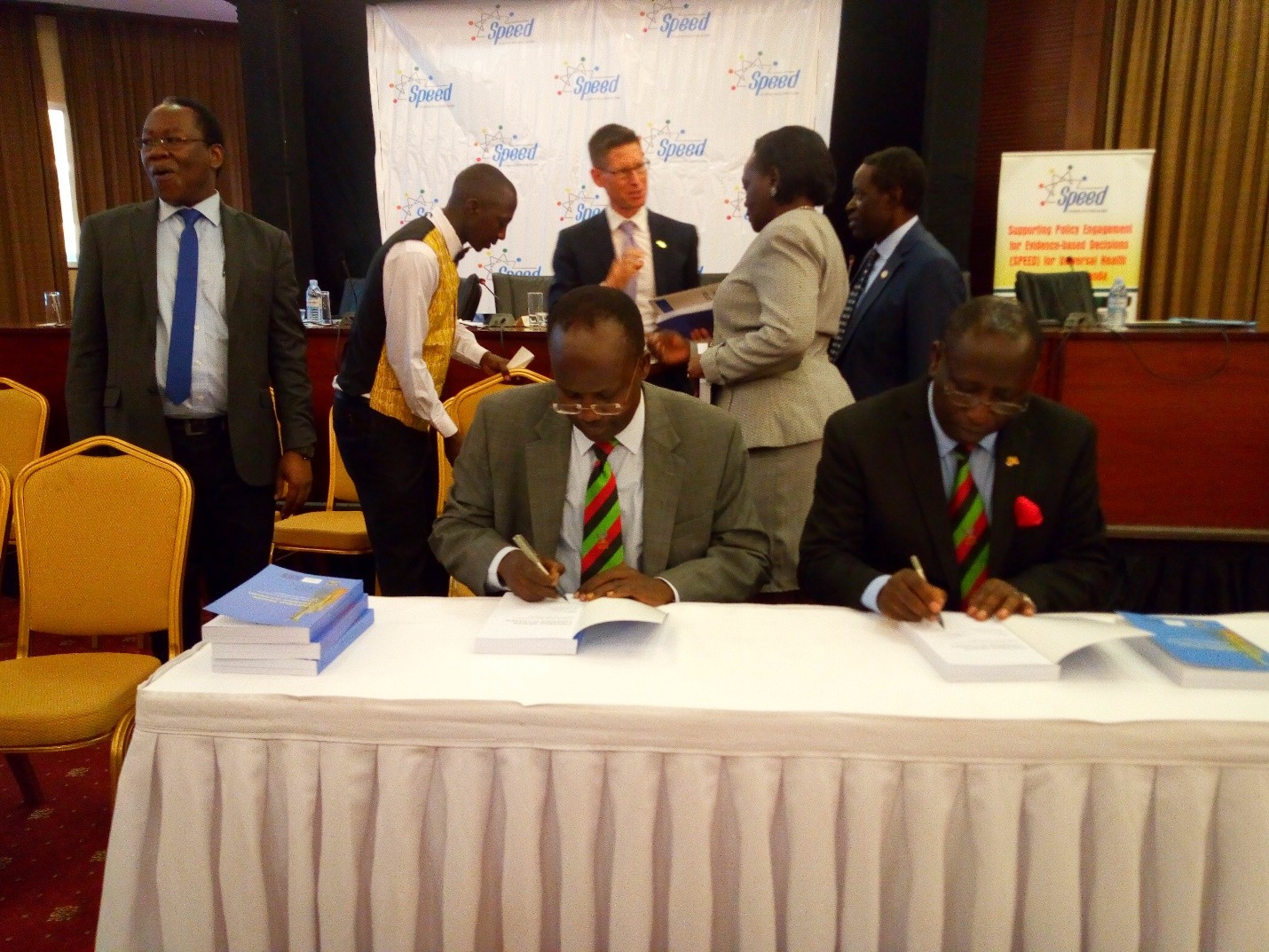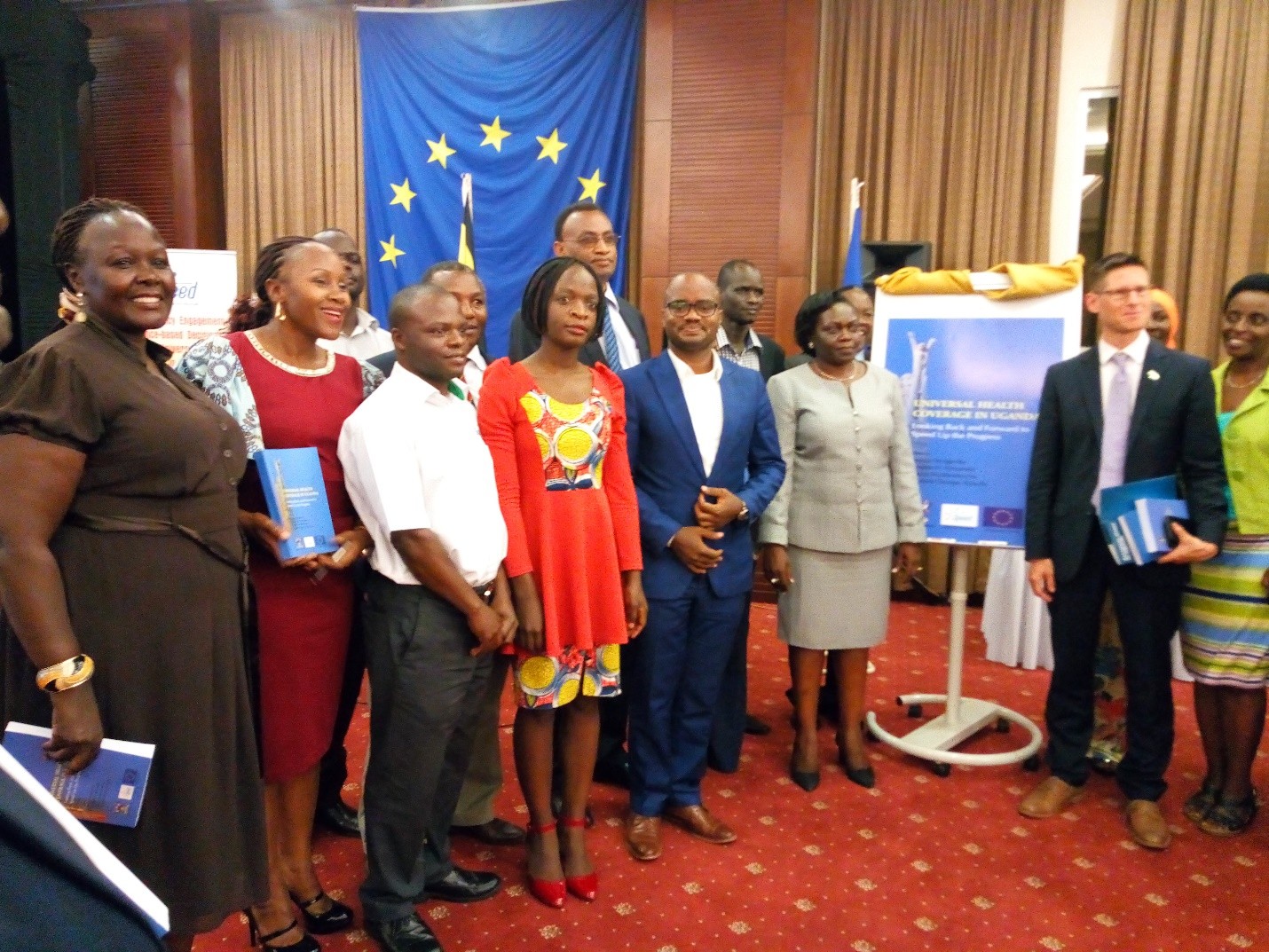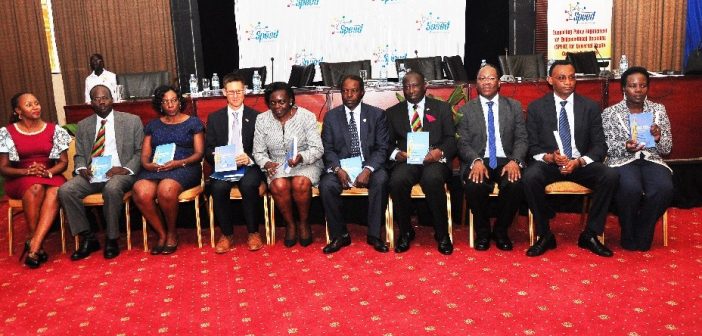
She was astonished to have her child admitted in a room with about 5 others, all with urgent health requirements like nebulizing and oxygen.
However, Dr Suzanne Kiwanuka, who is a senior lecturer at the School of Public Health, Makerere University, was shocked when the parents opted to go home with their children in such conditions. Thinking she was missing something, an alarmed Dr. Kiwanuka inquired as to why anyone would want to get their child discharged in that state. She was even more shocked by the uniform response; the parents claimed they would rather go and do their best to manage the situation from home because healthcare at this facility was expensive and they couldn’t afford it. In other words, the parents seemed to be giving up the lives of their children, something that’s extremely difficult for any parent to do under normal circumstances, because of the cost healthcare.
Clearly, the current cost of healthcare in the country causes people to make hard choices like these parents did because the country does not have a system where all a person’s health needs can be taken care of regardless of the cost.
Dr. Kiwanuka was relating this painful experience to an audience that had gathered at the launch of a book she had co-authored titled, UNIVERSAL HEALTH COVERAGE IN UGANDA: Looking Back and Forward to Speed Up the Progress. For Dr Kiwanuka, the experience portrayed a clear necessity for the 3 years’ work that her and a team of nearly 30 people from different sectors, had put into producing this book which was edited by Assoc Prof Freddie Ssengooba (as the leader of the team), Dr Suzanne Kiwanuka, Dr Elizeus Rutebemberwa and Elizabeth Ekirapa-Kiracho. All the editors are members of staff at Makerere University School of Public Health.
The book does not concentrate on curative health care but also explores preventive health care options. It localized to Uganda and thus offers solutions to how issues like financing can be dealt with in the face of tight budgets and competing demands.
The writing of the book was coordinated by the SPEED (Supporting Policy Engagement for Evidence-based Decision) Project which is run by the Makerere University School of Public Health with the main intention of capturing the status of UHC readiness. The captured evidence past including the challenges and successes regarding the health sector over the last 10 to 15 years can then be used to support health policy and systems developments for UHC agenda in Uganda and beyond.
The Team Leader speaks out about the genesis of this achievement
Relating the origin of this achievement to an expectant audience, Prof Ssengooba said he came across a call by the European Union to support Schools of Public Health to put up policies for their countries. It was quite late to apply, about 4 weeks to the deadline.
“I told colleagues that this looked like something we could get and I urged them to put in effort,” he added. “We were happy to emerge successful together with partners like the National Planning Authority, Uganda National Health Consumers Organisation and the Institute of Tropical Medicine in Europe.”
About the book which is a policy document, Dr Ssengooba noted that policy analysis is quite complicated because it requires working from where other scientists stopped and walking the delicate bridge of moving the science to the politicians and policy-makers.
He mentioned that the book has been a learning process for the whole team as they brainstormed on how they could expand coverage with the limited resources available.
“In Uganda, we’re expected to do miracles because unlike the US where a single person’s health budget is $7,000, here it is $11. So we decided that this new mission requires local thinking about ideas that can be put into practice. The book customizes lessons, not just best practice, but how to fit into our own context,” Dr Ssengooba explained.
On behalf of his team, Dr Ssengooba thanked the Ministry of Health for documenting their practice over the last couple of years because gave his team a starting point in their work.
He thanked the European Union which had been patient while they worked and gave them 3 years to reflect and produce a good policy document. At the event, the EU was represented at the event by the Acting Head of Cooperation, Thomas Tiedemann, who was there on behalf of the EU Ambassador to Uganda.
President Uhuru is already consulting with MakSPH over the policy recommendations in the book
Prof Ssengooba also made an astounding revelation to the audience at the book launch when he revealed that part of his team has already been to Kenya to give technical support to President Uhuru Kenyatta in his quest to implement Universal Health Care for his country.
The move by the Kenyan president to implement UHC stems from his campaign manifesto which highlighted four areas that he would focus on during his four. These were dubbed “The Big Four” with UHC being one of them, Prof Ssengooba told the media.
“As you can see, this work is already being asked for in the region which is a way of saying that there is need for UHC research in the region. In seeking to implement his manifesto about UHC, President Kenyatta contacted the World Health Organisation and WHO directed him to us saying there are already some people who are doing this. When has assembled a panel of experts and he invited us. We have been there but we are still going back,” Prof Ssengooba said. Speaking at the event on behalf of the Dean of the School of Public Health, Prof Garimoi Orach was proud of the work done by Dr Ssengooba and his team as fellow members of staff.
“We pledge that we shall continue to support the Ministry of Health and we are grateful to the EU for this grant and to all institutions that supported this work,” Prof Orach said. “We are also excited that the book is receiving attention in neighbouring countries. We are very proud indeed because this demonstrates that Makerere University is the institution to do business with.”
Uganda stands out among the countries that applied for this funding EU Representative
Representing the EU Ambassador at the function, Thomas Tiedemann, the Acting Had of Cooperation of the European Union Delegation to Uganda commedned the team that put together this book and revealed that among all the Schools of Public Health that applied for funding to develop UHC policies for their countries, Uganda stands out.
The UHC agenda is not tailored to only Uganda but to other developing countries as well in attaining universal health coverage.
“It pains to hear of things like unavailability of high quality cancer treatment. The book launched today is calling upon government to invest more both in curative and preventive health care. With this book, we are hoping that a lot of lessons will be drawn for Uganda with the aim of generating evidence-based policy,” Tiedemann said. He congratulated the Makerere School of Public Health for this achievement and he also thanked the SPEED project for the great work done in writing the book.
Ministry of Health should utilize Makerere University-Prof Bazeyo
In his speech, Prof William Bazeyo, called upon the Ministry of Health to consult with the university whenever they find it difficult to implement any of the policies or when there are diseases they do not understand.
“Makerere has always done research as its mandate and we have shared several policy documents from these researches with the Ministry of Health. We have done work with the malaria policy, the health insurance policy, HIV, circumcision and some work around sector training. Where you find it difficult to implement, talak to us and we shall walk with you,” Prof Bazeyo said while addressing the Minister of State for Primary Helath Care, Hon Sarah Opendi, who was representing Hon Ruth Aceng.
“We may not have the resources but we shall look to our partners to work with you to achieve any agenda,” he implored Hon Opendi.
Prof Bazeyo also mentioned that Makerere University is positioning itself to become a research-driven university that will empower the other 40 universities in the country because many of them do not have the capacity to do research.
“We are moving towards having 70% graduate training and 30% graduate training. We are going to be focusing on reach and training for post-graduate. Come 2019, we are not going to have any debts and we shall be able to support and develop research capacity that will answer questions for Uganda.”
Prof Bazeyo who was speaking on behalf the university’s vice chancellor thanked the EU for supporting the institution to do what the country needs different from situations where donors usually come with already prescribed agendas on what they want their donations to do.
He thanked Prof Ssengooba who was in the 1st cohort of students taught at the School of Public Health for being exemplary. He also mentioned that the College of Health Sciences to which the School of Public Helath belongs, contributes 80% to Makerere University’s research.
“90% of this research is funded by donors. At the moment, the university is ranked number 2 in Africa in research despite the challenges but we want to visit you Hon Minister because we know that if you put in a small piece, something towards our budget, we shall be number 1,” Prof Bazeyo appealed to the minister.
We have the capacity to provide health human resource for the country and beyond-Prof Ibingira
The Principal of the College of Health Sciences, Prof Charles Ibingira also informed the Minister that the college has the capacity to train human resource for the health sector for the whole country and the diaspora.
“You need to think about utilisin the college because we provide accountability, otherwise people will come and use us,” he said.
He added that the university is the leading research institution in the country and it can be used to solve many key issues in the health sector. He also talked about plans by the College of Health Sciences to spearhead a think tank that will contribute to the management of health issues in the country and in the region at large.
However, Prof Ibingira was very excited about the book and he thanked Prof Ssengooba and his team for delivering.
“I am very excited on this occasion where we are delivering on our promises and I am grateful to everyone who has made sure that the work is well-packaged. I humbly beg though that the information in the book will lead us to achieving UHC. This book strengthens the relevance of Makerere University and alerts us to the changing needs of health workers. It is an analysis of the different health policies in Uganda and a valuable asset to all partners engaged in seeing to UHC,” Prof Ibingira pointed out.
Government to commit 1% towards research-Hon Opendi
Speaking after everyone else, Hon Opendi informed the audience that government was committing to give 1% towards research in the country, a move that comes at the right time when the health sector is re-positioning itself. She said this commitment does not come easy since the country is resource-constrained alongside competing demands.
She also added that government was making progress with the implementation of the National Health Insurance Scheme.
Hon Opendi noted the proposal by Prof Ibingira about the think tank and said the Ministry of Health will be looking forward to seeking guidance that will be brought forward from it. She commended the book team for focusing on other factors around health including prevention and human resource without concentrating on the health facilities.
Other authors speaking about the book
One of the lead authors, Prof Rutebemberwa also noted that while Uganda’s history over the years has been dotted with attempts to improve Universal Health Care, the advocates usually were not sure about what exactly should be covered.
Dr. Kiwanuka on the other hand noted that there is need to move away from the thinking that a good health sector only refers to functional hospitals.
“Everyone needs to be healthy enough not to even go to hospital in the first place and that is what universal health coverage is about,” she pointed out.
Speaking at the event on behalf of the Dean of the School of Public Health, Prof Garimoi Orach was proud of the work done by Dr Ssengooba and his team as fellow members of staff.
“We pledge that we shall continue to support the Ministry of Health and we are grateful to the EU for this grant and to all institutions that supported this work,” Prof Orach said. “We are also excited that the book is receiving attention in neighbouring countries. We are very proud indeed because this demonstrates that Makerere University is the institution to do business with.”
According to Prof Ssengooba, the target audience for this book are the policy makers, health funders, civil societies who engage and teach people about health and the media.
He also noted that the population is putting a lot of their money towards health and that this calls for government to invest in prevention more than in cure.
He said the book also explores alternative ways in which all other sectors can support the achievement of UHC. E.g, when traffic is tightened like it was done along Masaka Road and there are reduced accidents, it means the burden to treat patients from accidents will reduce. This means that police’s input in strengthening traffic regulations has a contribution it makes towards the health sector.
About how they hope that the policies will be implemented, Dr Ekirapa, a co-author, informed the media that their team will continue to come up with policy briefs that will be issued to different stakeholders.
The book perfectly captures the adage that what we do today has been influenced by what was done yesterday. So the book looks at previous attempts at UHC and integrates it into the current health situation while taking into account the financial and political situation in the country to see how UHC can be implemented.


